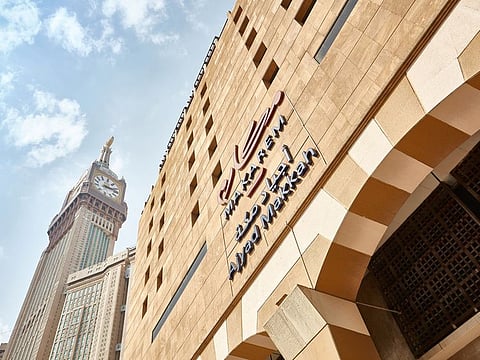Fixation with any one business model won’t work any more
Redirecting staff resources during COVID-19 times has become a science in itself

To recover, we need to adapt. And to adapt, we need to embrace change with all our capacity. COVID-19 has had a heavy toll on every economy, with the services sector hit hardest by the extended restraints on mobility.
In the hospitality sector, travel agencies and airlines saw a halt of operations, restaurants were forced to close down, and hotels were stricken with the lowest occupancy levels ever seen. Nearly 80 per cent of MENA’s hotels had to close down due to low occupancy in the first quarter, and up to 400,000 tourism-related jobs in the GCC countries are at risk. As Saudi hotel operators and owners, we couldn’t sit still and set off exploring solutions.
Also Read: Look: Saudi women stay fit amid COVID-19
The Saudi government administered an $18 billion stimulus package for heavily impacted sectors and a $4 billion tourism development fund, and allocated an amount of $2.4 billion to cover part of private sector salaries for three months. Still, in order to make the most out of the rescue packages, hospitality businesses need to take proactive steps and build an internal shield revamping their operational strategy in line with the new normal.
Redirecting resources
As a Saudi company, we have been committed to a capacity building plan that aims to foster national talent across the industry in line with Saudi Vision 2030. During the lockdown, we were preparing our staff through intensive training and upskilling sessions.
We redesigned operations to ensure touchless interactions and upgraded our sanitization protocols by partnering with consultancies and hygiene solutions providers like Ecolab and Diversey. We optimized labor costs depending less on on-call workforce and redistributing responsibilities among our in-house staff.
One concern was the inability to predict occupancy levels to prepare a relevant staffing scheme. By enacting a flexible work schedule that accommodates sudden changes in the availability of employees, we maneuvered our way around this predicament. We took other initiatives like tracking staffing requirement trends as a way to forecast required staff numbers, which helped us prepare for different scenarios and avoid being unnecessarily overstaffed.
Fluid task making
Saudi hoteliers are migrating to a task-based work model, training their staff to be more multi-tasked and serve in various positions across several divisions. We learned that the more agile the staff, the better and promptly began re-creating a team of versatile skilled employees and enacting a rotation system within each property to fill a range of positions.
We focused on decentralization and created a frontline of empowered managers who can take engage in proactive decision-making. We also realized that better optimization sometimes requires that certain job titles be merged without affecting productivity.
Prioritize
Repositioning staff to properties where their skills are needed and where they can exchange knowledge had multiple short- and long-term benefits. At the same time, incorporating more innovation such as cloud-based AI technologies was vital to reduce the administrative workload - this complemented the rotation and relocation strategies. All these measures were united under an upgraded HR policy focused on promoting open communications, transparency and creating a reassuring work environment.
The bottom-line is that the journey to recovery is flexible. It does not matter which plan you follow, what matters is that a new operational model is due for sustaining successful operations.
Hoteliers are now requested to turn every stone looking for unexploited resources and adopt a new working model that ensures the optimum use of resources for maximum productivity.

- Hassan Ahdab is President of Hotels Operations Saudi Arabia based Dur Hospitality Company. He was a speaker at the AHIC event.









